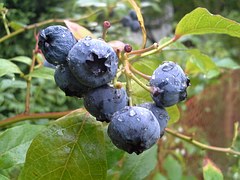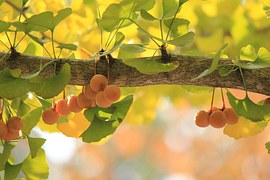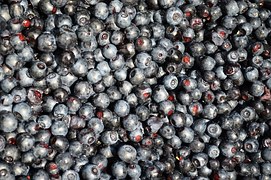A re you one of the 25% of people over 65 suffering from macular degeneration, the leading cause of blindness in the elderly?
re you one of the 25% of people over 65 suffering from macular degeneration, the leading cause of blindness in the elderly?
If you are and want to treat this problem naturally, I would like to share the best herbs for macular degeneration with you. Every herb on this list is safe to use, inexpensive and easily obtainable. And most importantly, they get results. The advice in this article is great for preventative measures too!
It’s important to know a little about macular degeneration before your can cure it, so let’s start there.
What Is Macular Degeneration?
The macula is the part of the eye responsible for fine detail and central vision. This nerve rich area of the retina is very sensitive and is located on the back of the eye. Common causes of macula breakdown include:
- Age
- Diet low in fruits and vegetables
- High blood pressure
- High cholesterol
- Smoking
All of these factors damage blood vessels in your eye, making it harder for oxygen to reach your retina. As a result, highly reactive oxygen molecules (free radicals) accumulate and cause damage to your eyes.
In order to neutralize these free radicals, you need to consume antioxidants which are found in different herbs and leafy vegetables, many of which you will see now.
Bilberry: Highly Researched And Safe
This small berry looks very similar to blueberries and is often called “European blueberries.” The use of bilberry dates back hundreds of years. It didn’t become popular until World War II pilots began taking it before nighttime bombing missions. They swore it improved their night vision and the sharpness of their vision, something researchers were able to confirm as true.
Bilberry is excellent for macular degeneration because it contains potent antioxidants called anthocyanosides. This antioxidant strengthens capillaries in the retina, slowing down eye problems.
In one study, 400 milligrams of bilberry (along with beta-carotene) were given daily to participants with macular degeneration and improvement in night vision and visual fields were reported.
In another study, 31 people with different retinal problems, macular degeneration included, were given bilberry extract. Those suffering from macula problems reported better eyesight.
In a third study, a South Dakota researcher recruited 10 people over the ages of 61 with macular degeneration. The researcher gave the participants many antioxidant rich vegetables and fruits, as well as bilberry and ginkgo extracts (more on this herb later). After a year, all 10 people saw improvement in their eye sight.
In another series of tests, bilberry was shown to stimulate the production of rhodopsin, a pigment essential to night vision. Participants taking 60 milligrams experienced macula recovery after just a week. They had better eyesight during the day and better twilight vision too.
How To Take:
There are a few ways to take this herb and the most researched preparation is an extract or extract capsules. Good results are found after taking 10 to 20 drops of the extract a few times a day. For the capsules, take 1 to 2 80 to 160 milligram capsules a few times a day.
A tea is another great way to enjoy bilberry. You can either make a tea with bilberry powder or simply purchase bilberry tea bags.
Safety Concerns:
This herb is considered safe and no side effects have been reported.
Additional Health Benefits:
Besides improving eyesight and repairing macula damage, bilberry has been found helpful with:
- General disease prevention
- Cataracts
- Diabetes
- Varicose veins
- Diarrhea
- Mouth sores
- Painful menstruation
- Heart disease
- Peptic ulcers
- Stroke prevention
- Angina
- Glaucoma
Ginkgo: The Sacred Asian Tree
Ginkgo is a truly amazing herbs and one of the most widely used in the world. The medicinal value comes from the leaves and the tree itself is the oldest surviving tree in existence; debuting over 200 million years ago!
 Ginkgo is less researched for macular degeneration than bilberry but is still helpful. In one small French study, people suffering from this eye problem improved eyesight “significantly.”
Ginkgo is less researched for macular degeneration than bilberry but is still helpful. In one small French study, people suffering from this eye problem improved eyesight “significantly.”
Two more studies mirror these results. Participants were given 80 milligrams of a standardized ginkgo extract twice a day and improved long distant sight and reversal in damage to the retina.
This helpful herb works by:
- Increasing circulation within the eye, which supplies more oxygen to the retina
- Increasing circulation to the lens and minimizes the effects of free radicals
- Reduces retinal edema and cellular lesions in the retina
- Deactivates platelet activation factor (PAF), which is essential for the growth of new capillaries
Ginkgo contains powerful antioxidants called ginkgo flavone glycosides and terpene lactones too.
How To Take:
You’ll want to take the extract version of this herb; it’s the most effective preparation. Here’s a wonderful ginkgo extract from a very trusted supplier. You can take 10 to 20 drops in water or juice, a few times a day.
Safety Concerns:
No serious side effects have been reported with ginkgo. Some mild side effects experienced are:
- Irritability
- Restlessness
- Diarrhea
- Nausea
- Vomiting
Additional Health Benefits:
This amazing herb can help:
- Mountain climbers avoid altitude sickness
- Alzheimer’s disease and dementia (fitting the oldest tree on earth would help so many issues facing the elderly)
- Stroke and heart disease
- Erectile dysfunction
- Chronic dizziness
- Chronic ringing in the ears
- Hangovers
Blackberry, Cranberry And Raspberry: Family Members Of Bilberry
Although not as well known for macualr degenration as bilberry, these three herbs are very useful in its treatment. Blackberry, cranberry and raspberry are rich in many antioxidants, including:
- Vitamins C and E
- Selenium
- Carotenoids (including beta-carotene
- Anthocyanosides
These antioxidants are generally found in dark colored fruits and berries. Everything said about bilberry more or less applies to these fruits and many of the testing done on bilberry included one or more of blackberry, cranberry and raspberry.
How To Take:
For preventative measures, you can eat these berries any way you find pleasing, including:
- Jams
- Jellies
- In preserves
- Fresh, frozen, canned
You can drink cranberry juice too.
To make a raspberry infusion, use 1 to 2 teaspoons of the dried herb per cup of boiling water. Steep for 10 to 15 minutes and strain.
For a blackberry infusion, use 2 to 3 teaspoons of the dried leaves per cup of boiling water. Steep for 10 to 20 minutes and strain.
You can buy tea bags of these herbs too.
A Few Other Herbs, Vegetables And Tips To Help
Three more herbs loaded with antioxidants are:
- Clove: You’ll want to use clove oil to repair retinal issues. You can put a drop or two in a antioxidant mint tea and drink up to 4 a day.
- Wolfberry: The Chinese have traditionally used this herb for blurred vision and other sight problems.
- Shepard’s purse: In Traditional Chinese Medicine this herb helps “brighten vision” and it contains both potassium and vitamin C.
According to Dr. Seddon, eating antioxidant rich fruits and vegetables at least 5 times a week cuts the risk of macular degeneration in half.
Collard greens and spinach seem to help tremendously, as well as:
- Bok choy
- Broccoli
- Brussels sprouts
- Cabbage
- Kale
- Kohlrabi
- Mustard greens
- Radishes
- Turnip greens
- Watercress
- Orange peppers
- Kiwi fruits
- Grapes
- Summer squash
- Orange juice
- Egg yolks
- Salmon
- Sardines
- Tuna
Make sure to avoid to avoid:
- Alcohol
- Smoking
- Sugar
- Saturated fats
All 4 of these speed up retinal damage.
Did This Help?
I hope so! There are many ways to reverse macular degeneration and it can easily be done naturally using the right herbs and diet. The best have been listed in this post and if you had to pick one, I would go with bilberry. My second choice would be ginkgo. You can always use them together for best results.
If you have any questions, comment below and I’ll make sure to respond as fast as possible. If you would like to spread the message about the healing power of herbs, share on social media for friends and family to see.
Thanks for reading!


